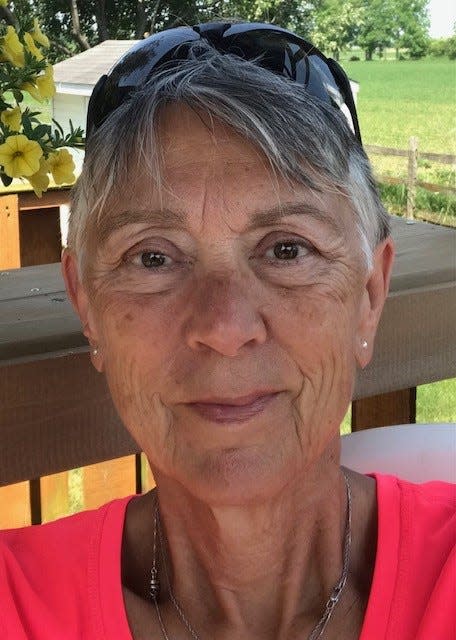Mary Bullard: Let’s not do 1920 politics
My favorite reads are mysteries. Sara DiVello’s “Broadway’s Butterfly” is a whodunit that takes place during Warren Harding’s troubled presidency. The author’s meticulous research includes documents, actual police reports, correspondence, interviews and newspaper accounts. Beyond the notorious Tea Pot Dome Scandal, I was unfamiliar with Harding’s background and illicit dealings – so some research was in order.

In 1920, Warren G. Harding won the White House in a landslide with his pledge for a “return to normalcy.” The Ohioan was a pro-business, conservative Republican. Taxes were reduced, particularly for corporations and wealthy individuals; high protective tariffs were enacted; and immigration was limited.
Harding filled the cabinet and other powerful offices with his “Ohio Gang” buddies. Throughout term there were scandals involving kickbacks and secret deals which in today’s economy would amount to billions of dollars. Additionally, hush money was paid to conceal at least seven extramarital affairs and an out of wedlock daughter. Harding once told the press, “If I was a woman, I would always be pregnant. I can’t say no.”
Do these shenanigans sound like our nightly news? Certainly, some of today’s politicians are following in Harding’s footsteps and beyond. With the 2024 election cycle already underway, how can we avoid electing leaders who have ulterior motives and questionable backgrounds? We have an advantage over the voters of the 1920s. There are many credible sources both online and in print that provide details on candidates. Now is the time to start researching who is running and it is time to encourage upstanding candidates.
AARP has useful suggestions on how to get to know candidates:
Check the candidates’ websites to see where they stand on your hot-button issues.
If an incumbent is in the House of Representatives or Senate, go to Congress.gov and research their voting records, find out what issues they concentrate on and how to contact them.
Attend campaign events, including town halls in person or online. Check for candidate visits in your community. Local party offices, public libraries and other community organizations usually have information on such events.
Find the campaign office and call or drop in. Candidates want your vote. Speak to your candidate or her or his representative and get your questions answered about the issues that matter to you.
Check the candidates’ answers on important issues. Factcheck.org, which is run by the Annenberg Public Policy Center at the University of Pennsylvania, keeps track of candidates’ statements and claims.
Additional nonpartisan websites provide information on the issues, the candidates and voting procedures. Just a few are listed below:
Decide who to vote for, USAGov: www.usa.gov/voter-research. Learn how to make informed choices by using voter guides and sample ballots to research candidates.
Federal Election Commission: www.fec.gov/introduction-campaign-finance/how-to-research-public-records. The FEC compiles nationwide statistics on federal campaigns to help the public and researchers understand how candidates compare with national and state trends and rankings. For further research, indexes and computerized search systems are available.
Vote411: www.vote411.org. See what's on your ballot, check your voter registration, find your polling place and discover upcoming debates in your area.
League of Women Voters: lwv.org. The LWV hosts hundreds of candidate debates and forums across the country each year and provides straightforward information about candidates and ballot issues.
Democracy requires informed and involved voters. Before you throw up your hands at the growing barrage of campaign ads and social media hype, take time to learn what issues are important locally, statewide and nationally. Ask your representatives questions and share your concerns.
Spoiler alert for those of you thinking of reading Sara DiVello’s “Broadway’s Butterfly.” The list of suspects reaches to the highest offices in Washington. Truth can be stranger than fiction. Let’s rewrite our national story in 2024 with candidates that will represent all people with honesty and integrity.
Mary Bullard is a retired librarian and member of Stronger Together Huddle, a group engaged in supporting and promoting the common good. She resides in Lambertville and can be reached at mcneil102@icloud.com.
This article originally appeared on The Monroe News: Mary Bullard: Let’s not do 1920 politics
